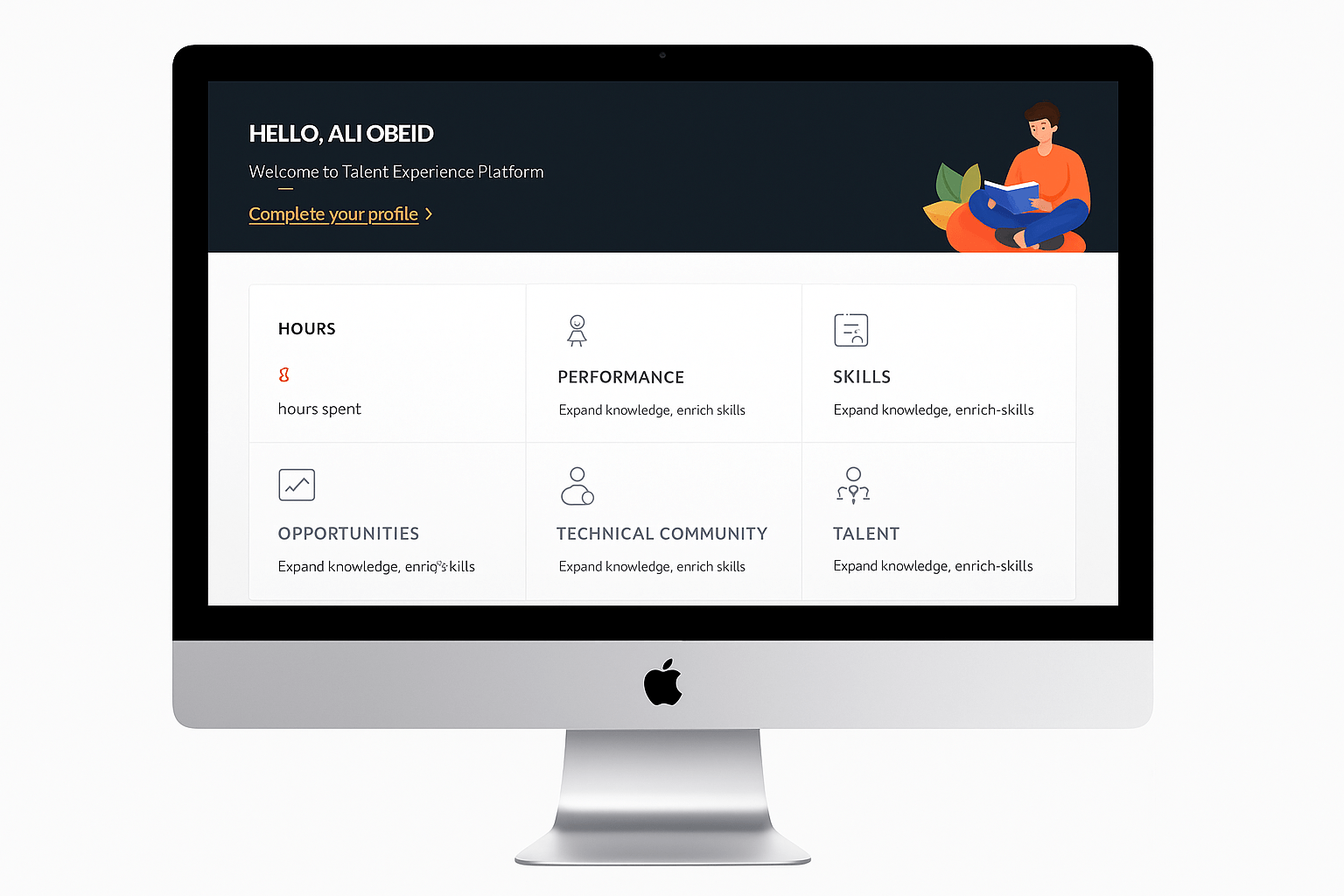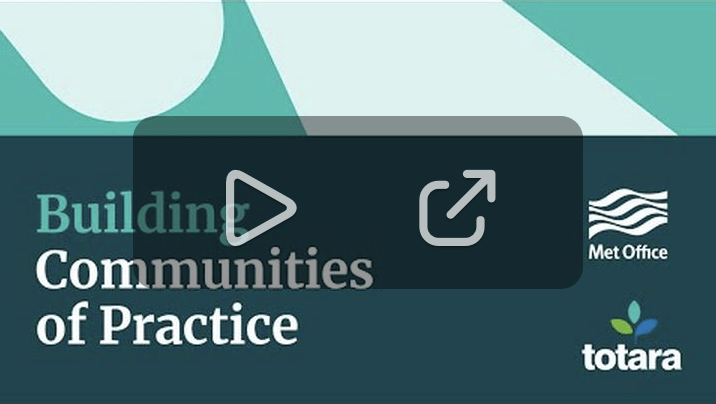
Share expertise with collaborative learning in your LMS
Build communities of practice and embed social learning into your everyday learner journeys.


People learn best when they learn together
Collaborative learning offers a powerful way to apply context and role-specific meaning to formal learning content.
When learners have the opportunity to discuss, repeat and reflect on what they’ve learnt, there’s more chance they’ll remember and utilise what they’ve been taught. A scenario covered in eLearning is useful – but one that’s verified by a more experienced peer can truly remain ‘sticky’.
Blending social, informal and collaborative learning into your everyday learner journeys promotes learner engagement and application. This helps you maximise the impact of your formal, structured and compliance focused learning.
What’s not to love?
How can an LMS promote collaborative learning?
Podcasts, YouTube, blogs and more – peer generated content takes many formats and can be powerful tools when they come recommended by someone in the know.
Build a continuous learning culture by providing learners with safe spaces to practice and contextualise learning content.

Collaboration workspaces

Curated and user-generated content
Curate useful resources and turn your SMEs into content creators
Stay in control with role creation rules and safeguards to flag and remove content.

Learn in the flow of work

Discussion Forums

Personalise by role

Blended learning pathways
Share role-specific knowledge
Create, curate and collaborate. Make the most of the SMEs and knowledge within your organisation by encouraging learners to share useful resources – and create their own.
Combined with our recommendations engine, you can ensure learners receive personalised content that is relevant to their role.

Maximise the impact of your formal and compliance training
Compliance training and other formal learning are essential requirements for your organisation to operate effectively. Learning doesn’t stop when you’ve completed your mandatory training, so how do you maintain its impact?
Encouraging learners to discuss, reflect and share their own experiences of learning theory can help them apply their formal learning to their everyday role.
Explore how Arriva used ‘Compliance Champions’ to build a culture of compliance in our blog:

How to build thriving Communities of Practice
Collaborative learning encourages your staff to curate, create and share essential resources that can be accessed by learners at the point of need, in the flow of work.
Totara can provide the framework, but how do you nurture a culture?
Here’s how The Met Office built a thriving Community of Practice.
Nurture a culture of coaching
Collaborative learning tools enable you to connect learners with each other. With Totara’s advanced audience options, you can create the spaces to enable meaningful conversations with more experienced colleagues, fostering a mentoring culture.


See our collaborative learning tools in action!
Totara’s thriving Community has over 5000 L&D experts who share knowledge, insights, & resources.
Collaborative Learning and LMS – FAQs
These collaborative learning features were previously marketed as ‘Totara Engage’, a Learning Experience Platform (LXP). What’s changed?
When version 19 was released in early 2025, our collaborative and social learning features were moved to Totara Learn, our Learning Management System (LMS).
This made it easier for all Totara Learn customers to include the power of collaborative learning into everyday learner journeys. These ‘LXP’ features also complement some key goals of an LMS; skills development, supporting practical, on-the-job application and driving meaningful behaviour change.
Learn more about Totara’s version 19 release.
What is collaborative learning in an LMS?
How does Totara support collaborative learning?
Totara Learn supports collaborative learning through social features like discussion forums, workspaces, curated content playlists, peer-generated resources, and interactive activities that encourage participation and knowledge sharing.
These features can all be personalised through a number of methods, such as audience and role definitions, by content topics, by tenancy etc.
This helps make the social learning in your organisation meaningful for the learner, by connecting them with the right people and sharing topics and content relevant to their role.
What are the benefits of knowledge sharing in an LMS?
Knowledge sharing helps organisations unlock internal expertise, improve engagement, reinforce formal training, and build a continuous learning culture.
Collaborative learning tools make this possible at scale, offering a personalised learner experience, no matter the size, complexity or global nature of your organisation.
Can I combine collaborative and compliance learning in Totara?
Yes. Totara allows you to blend structured compliance training with collaborative elements like reflection activities, discussion prompts, and peer input—adding real-world relevance to mandatory learning.
Collaborative learning can play a vital role in providing learners with safe spaces to ask questions on mission and safety-critical learning content.
Discussing scenarios covered in formal compliance training with more experienced peers can help apply real-world context, helping to make learning stick and increasing the chances of driving behaviour change and application.
What types of content support collaborative learning?
Collaborative learning can include videos, podcasts, blogs, discussion boards, group assignments, and peer-reviewed tasks.
Totara Learn enables users to create and share content easily within the platform, while its mobile-friendly platform and integrations with Microsoft Teams make it easy to learn in the flow of work.
How does collaborative learning improve learner engagement?
When learners interact with peers, contribute ideas, and apply knowledge in context, they’re more likely to stay engaged and retain what they’ve learned—making learning stick.
It’s also a great way to follow up your structured, formal and compliance-focused learning to encourage learners to reflect, discuss and apply theory to real-world situations.
Collectively, this process can help drive meaningful behaviour change.




